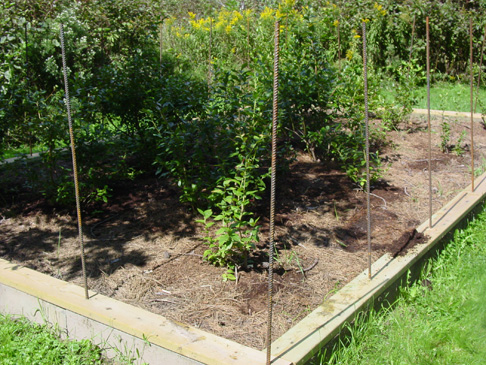If you are a Wisconsin gardener with alkaline clay soil, growing blueberries is quite a challenge. My brother-in-law who lives in the northern Wisconsin had been trying for at least 10 years to grow blueberries with very limited success. He bought blueberry bushes that were hardy in Wisconsin, planted them carefully, then kept them watered and relatively weed free. However, his plants were always spindly with very few berries and the rabbits kept eating the bushes. It got to the point that even the kids laughed about the blueberry patch with no berries. Finally, he sought advice from a gardening neighbor who was Amish and very successful at growing blueberries.
Basically the neighbor’s advice was to amend the soil. He recommended a raised bed filled with half soil and half peat moss. Then after planting the blueberries, his advice was to add a layer of pine needles around the blueberry plants to maintain the soil’s acidity, conserve moisture and help prevent weeds. Extra pine needles could be added as needed in subsequent years. Also, he recommended a wire fence around the whole blueberry patch to keep out rabbits and deer.
Last year my brother-in-law decided to follow his advice. He built a raised bed and moved all of his blueberry plants into their new home, added the pine needles, watered them in and hoped for the best.
It turned out that his neighbor was right! This year was completely different. Those same bushes produced a huge crop of blueberries and when I went to visit in mid-September, he had a few berries on his bushes still ripening out to show me. I thought this simple Amish solution was a great example of organic gardening overcoming difficult growing conditions and was a source of great inspiration to me.






I liked the article! We basically do that, but we donot use a raised bed and we put a layer of about 6 inches of peat on the bed surrounded by straw. Also we have high bush berry plants which the deer are not so likely to trim.
Great article;Thanks!!!